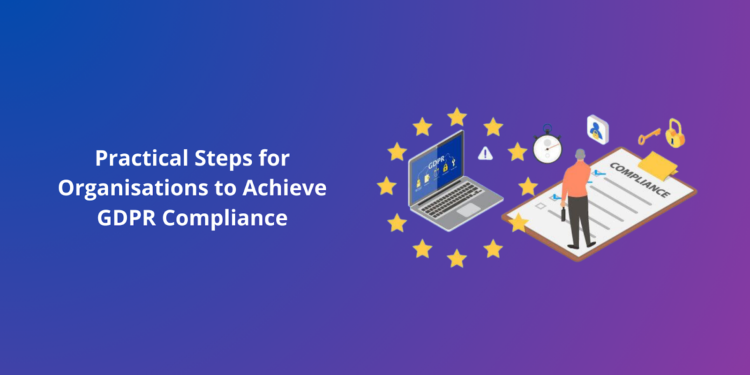The General Data Protection Regulation (GDPR) has become an essential foundation for preserving people’s rights to their privacy. In addition to being a requirement under the law, GDPR compliance demonstrates a company’s dedication to ethical business practices and data security. To ensure the appropriate management of personal data, this blog explores the importance of GDPR Training, and the practical measures organisations may take to achieve GDPR Compliance. Implementing these measures enables organisations to foster trust with their stakeholders and consumers, just as GDPR training gives professionals the skills to negotiate data protection.
Table of Contents
Understanding GDPR Compliance
The GDPR is a thorough legislation created to safeguard people’s privacy and personal data. It applies to businesses that handle people’s data inside the European Union (EU). GDPR compliance involves more than just following the law; it also involves upholding people’s rights and promoting a data protection culture.
Step-by-Step Guide to Achieving GDPR Compliance
The road to GDPR compliance must be travelled methodically, incorporating several departments and stakeholders within an organisation. Here are some helpful actions to help you in your compliance journey:
- Start by carrying out an exhaustive audit of the personal data that your company handles. This entails establishing the different data kinds gathered, the processing goals, and the storage locations for the data. A vital component of GDPR compliance is building a thorough data map.
- Designate a Data Protection Officer to manage your organisation’s GDPR compliance initiatives. The DPO ensures that data protection practises and policies adhere to GDPR standards and that the rights of data subjects are upheld.
- For high-risk processing tasks, do a data protection impact assessment. This evaluation ensures that data processing operations comply with GDPR principles by identifying and mitigating threats to people’s rights and freedoms.
- To comply with GDPR rules, review and update your privacy notifications and policies. Ensure that data subjects are informed in a clear and transparent manner about processing their personal information, including the legal justification for the processing.
- Examine your consent processes to make sure they adhere to GDPR requirements. Freely granted, precise, informed, and unambiguous consent is required. It must be possible for people to change their minds at any time.
- Establish procedures supporting data subjects’ rights, such as the right to access, correct, and delete their personal information. Requests from data subjects must be answered by organisations within a certain time range.
- Create a thorough data breach response strategy to identify, notify, and address breaches quickly. Create procedures for notifying the appropriate authorities and any impacted individuals in the case of a breach.
The Role of GDPR Training
GDPR training is crucial for ensuring that workers know their data protection duties, just as GDPR compliance is crucial for organisations.
- To inform staff on GDPR rules, tenets, and the significance of data protection, conduct GDPR training sessions. Employees that get training are more equipped to identify possible hazards and manage personal data appropriately.
- Employees must be informed of changes to GDPR legislation as data protection practices change. Regular training sessions and updates keep employees informed and prepared for data protection.
- Training on the GDPR promotes a culture of data protection throughout the company. Employees’ everyday tasks include data protection once they comprehend its importance and their involvement in compliance.
Conclusion
GDPR compliance is a continuous process that calls for commitment, cooperation, and adherence to data protection standards. Implementing practical actions for compliance allows organisations to preserve individuals’ rights and privacy, just as GDPR training gives professionals the tools to understand the complexity of data protection. Organisations prioritising GDPR compliance do more than uphold their legal requirements; they also foster a culture of trust, openness, and moral behaviour that resonates with stakeholders and consumers.













